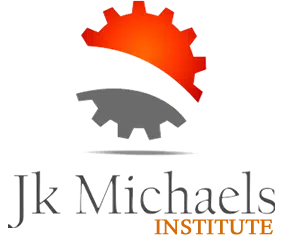FUNDAMENTALS OF INTERNAL AUDITING
Fundamentals of Internal Auditing course will teach you about the industry and the many career paths an internal auditor could follow. This course gives new Internal Auditors an understanding of their roles and responsibilities. The work of the Internal Audit department is also analysed within the larger context of assurance providing, highlighting current difficulties facing the industry and tracing the key moments that shaped the current emphasis on audits and guarantees.
Overview
Curriculum
Curriculum
- 3 Sections
- 17 Lessons
- 2 Days
Expand all sectionsCollapse all sections
- MODULE 1: ESSENTIALS OF INTERNAL AUDITING:6
- 1.0Foundations of Internal Auditing The IIA’s Mission of Internal Audit Definition of Internal Auditing The purpose, authority, and responsibility of the internal audit activity Requirements of an internal audit charter Components Board approval Communication of the charter Difference between assurance and consulting services Conformance with the IIA Code of Ethics
- 1.1Independence and Objectivity Interpret organizational independence of the internal audit activity Importance of independence, functional reporting, etc. Identify whether the internal audit activity has any impairments to its independence Assess and maintain an individual internal auditor’s objectivity Analyse policies that promote objectivity
- 1.2Proficiency and Due Professional Care Knowledge, skills, and competencies required Demonstrate the competencies to perform audit responsibilities Technical skills Soft skills Demonstrate due to professional care Continuous professional development
- 1.3Quality Assurance and Improvement Program Elements of the quality assurance and improvement program Internal assessments External assessments Reporting the results of the quality assurance and improvement program Identify appropriate disclosure of conformance vs. nonconformance The IIA’s International Standards for the Professional Practice of Internal Auditing
- 1.4Governance, Risk Management, and Control The concept of organisational governance The impact of organizational culture on the overall control environment Interpret the organization’s ethics and compliance-related issues Alleged violations Dispositions Describe corporate social responsibility Interpret fundamental concepts of risk and the risk management process Describe globally accepted risk management frameworks appropriate to the organization (COSO – ERM, ISO 31000, etc.) Examine the effectiveness of risk management within processes and functions Recognize the appropriateness of the internal audit activity’s role in the organization’s risk management process Interpret internal control concepts and types of controls Apply globally accepted internal control frameworks appropriate to the organization (COSO, etc.) Examine the effectiveness and efficiency of internal controls
- 1.5Fraud Risks Interpret fraud risks and types of frauds and determine whether fraud risks require special consideration when conducting an engagement Evaluate the potential for the occurrence of fraud (red flags, etc.) and how the organization detects and manages fraud risks Recommend controls to prevent and detect fraud and education to improve the organization’s fraud awareness Recognize techniques and internal audit roles related to forensic auditing
- MODULE 2: PRACTICE OF INTERNAL AUDITING4
- 3.0Managing the Internal Audit Activity Internal Audit Operations Establishing a Risk-based Internal Audit Plan Communicating and Reporting to Senior Management and the Board
- 3.1Planning the Engagement Engagement Planning
- 3.2Performing the Engagement Information Gathering Analysis and Evaluation Engagement Supervision
- 3.3ommunicating Engagement Results and Monitoring Progress Communicating Engagement Results and the Acceptance of Risk Monitoring Progress
- MODULE 3: BUSINESS KNOWLEDGE FOR INTERNAL AUDITING7
- 4.0Business Acumen
- 4.1Organizational Objectives, Behaviour, and Performance
- 4.2Organizational Structure and Business Processes
- 4.3Data Analytics
- 4.4Information Security Physical security controls User authentication and authorization controls Encryption, firewalls, antivirus, etc Data privacy laws and their potential impact on data security policies and practices Emerging technology practices Bring Your Device [BYOD], smart devices, Internet of Things [IoT], etc.
- 4.5Information Technology Application and System Software IT Infrastructure and IT Control Framework Disaster Recovery
- 4.6Financial Management Financial Accounting and Finance Managerial Accounting
FAQs
Internal Audit
Quality Assurance
Risk Management
Audit/Assessment
Compliance
Finance
External Audit
Internal Control
Quality Assurance Managers
Quality Control Managers
Production Supervisors
Food Safety Managers
Maintenance Supervisors
Quality Assurance Technicians
Production Managers
Safety Managers
Future Auditees
Reviews
Features
- JK Michaels is a PMI accredited ATP(Authorized Training Partner)
- Earn 30 PDUs with Practical, live instructor led sessions
- 9 hours of High-Quality e-learning
- Introduction to predictive and Agile software(microsoft project +JIRA) Poject Leadership Quotients Assessment
- Regular monthly webinars,revisions and exam support.
- Action-oriented learning through case studies,role plays ,games e.t.c
- 90 days e-learning access R language Comprehensive Exam Support






